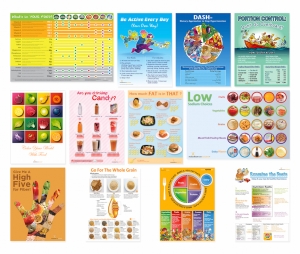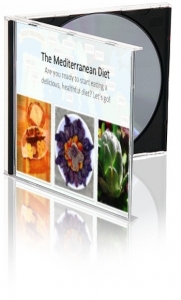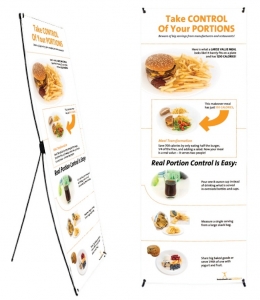Butternut Squash 101
 Butternut squash is a tasty type of winter squash. It's got a thick outer skin with hard orange flesh surrounding an inner pocket of seeds. To cook butternut squash, you usually peel off the skin and scoop out the seeds, dicing the remaining flesh for sautéing, roasting, mashing, or pureeing into soup. You can also roast the squash whole, then scoop everything out of the skin, discarding the seedy center. Butternut squash seeds can be toasted and eaten, just like pumpkin seeds.When it comes to taste, butternut squash simply can't be beat. Its warm nutty flavor is good for sweet and savory applications alike. With a mild sweetness and rich texture, butternut squash is a perfect vegetable for fall and winter cooking.There are lots of nutrients in this tasty winter squash too!A single cup of cubed and baked butternut squash has 457% of your daily value (DV) for vitamin A, 52% DV vitamin C, and 17% DV potassium. It's also a good source of folate, manganese, magnesium, niacin, thiamin, vitamin B6, and vitamin E.
Butternut squash is a tasty type of winter squash. It's got a thick outer skin with hard orange flesh surrounding an inner pocket of seeds. To cook butternut squash, you usually peel off the skin and scoop out the seeds, dicing the remaining flesh for sautéing, roasting, mashing, or pureeing into soup. You can also roast the squash whole, then scoop everything out of the skin, discarding the seedy center. Butternut squash seeds can be toasted and eaten, just like pumpkin seeds.When it comes to taste, butternut squash simply can't be beat. Its warm nutty flavor is good for sweet and savory applications alike. With a mild sweetness and rich texture, butternut squash is a perfect vegetable for fall and winter cooking.There are lots of nutrients in this tasty winter squash too!A single cup of cubed and baked butternut squash has 457% of your daily value (DV) for vitamin A, 52% DV vitamin C, and 17% DV potassium. It's also a good source of folate, manganese, magnesium, niacin, thiamin, vitamin B6, and vitamin E.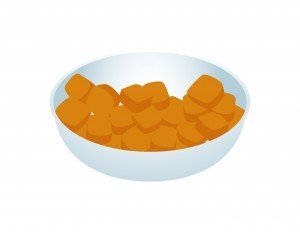 All these nutrients are great for your health. According to the National Library of Medicine, "Vitamin A helps form and maintain healthy skin, teeth, skeletal and soft tissue, [and] mucus membranes [...] . It is also known as retinol because it produces the pigments in the retina of the eye." The National Institutes of Health also chronicle the health impact of vitamin A, asserting, "Vitamin A [...] supports cell growth and differentiation, playing a critical role in the normal formation and maintenance of the heart, lungs, kidneys, and other organs."The vitamin C in butternut squash also has lots of health-boosting properties. For example, "Vitamin C is needed for the growth and repair of tissues in all parts of your body. It is used to form an important protein used to make skin, tendons, ligaments, and blood vessels, heal wounds and form scar tissue, [and] repair and maintain cartilage, bones, and teeth" (source). Vitamin C is also an antioxidant, fighting free radical damage and promoting general good health.Want to start cooking with butternut squash? Here are a few simple, tasty, and healthful recipes that you'll love...
All these nutrients are great for your health. According to the National Library of Medicine, "Vitamin A helps form and maintain healthy skin, teeth, skeletal and soft tissue, [and] mucus membranes [...] . It is also known as retinol because it produces the pigments in the retina of the eye." The National Institutes of Health also chronicle the health impact of vitamin A, asserting, "Vitamin A [...] supports cell growth and differentiation, playing a critical role in the normal formation and maintenance of the heart, lungs, kidneys, and other organs."The vitamin C in butternut squash also has lots of health-boosting properties. For example, "Vitamin C is needed for the growth and repair of tissues in all parts of your body. It is used to form an important protein used to make skin, tendons, ligaments, and blood vessels, heal wounds and form scar tissue, [and] repair and maintain cartilage, bones, and teeth" (source). Vitamin C is also an antioxidant, fighting free radical damage and promoting general good health.Want to start cooking with butternut squash? Here are a few simple, tasty, and healthful recipes that you'll love...
- Lemon Pepper Butternut Squash Medallions
- Mediterranean Winter Squash Sauté
- Roasted Winter Vegetable Soup
- Stuffed Butternut Squash
And here's a free PDF handout with the highlights of Butternut Squash 101.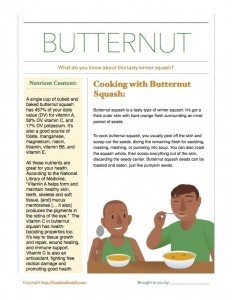 Remember, we're here to help you look your very best, right now! Which of the bestsellers from the Nutrition Education Store would be most useful for you?
Remember, we're here to help you look your very best, right now! Which of the bestsellers from the Nutrition Education Store would be most useful for you?